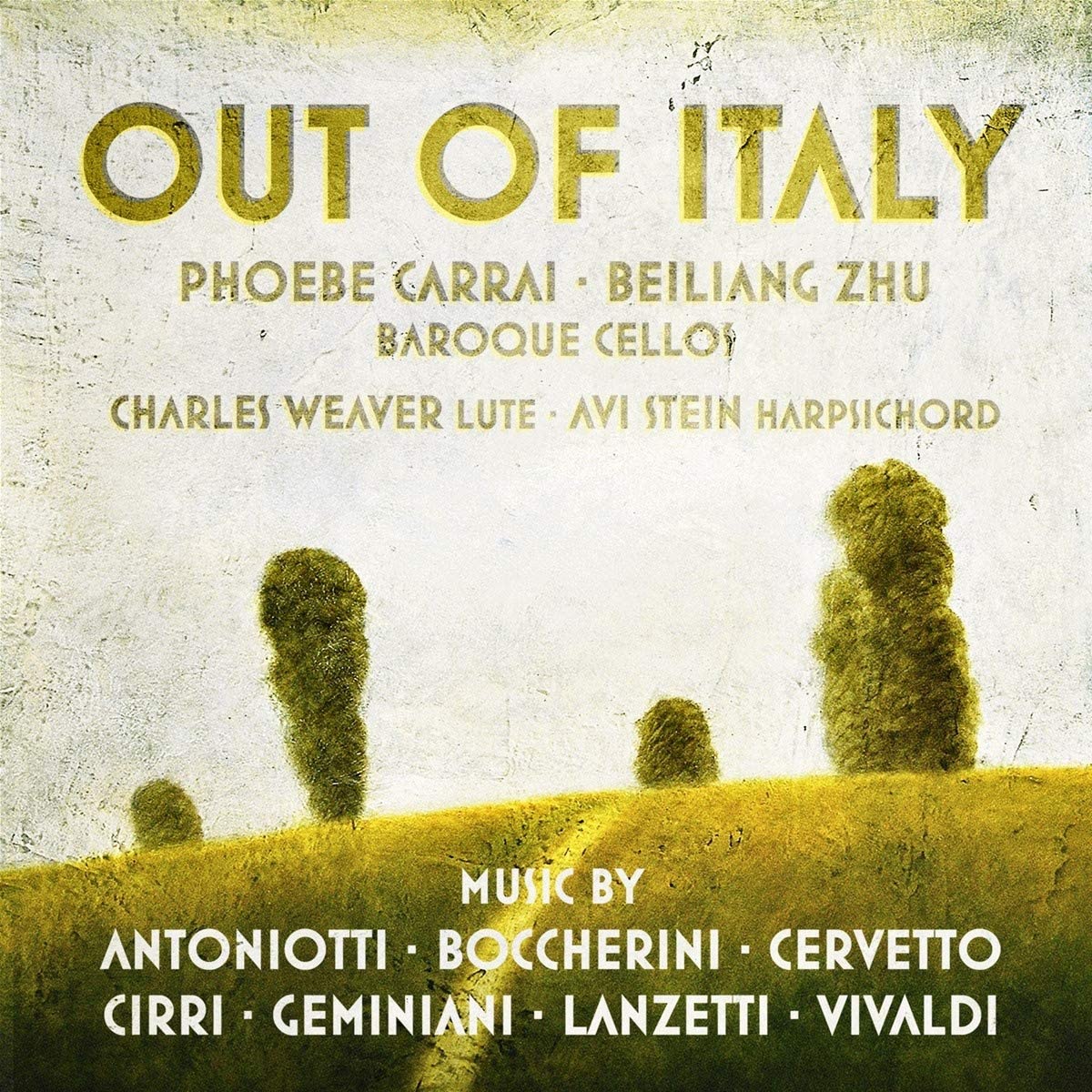Phoebe Carrai, Beiliang Zhu baroque cello, Charles Weaver lute, Avi Stein harpsichord
72:25
Avie AV2394
Music by Antoniotto, Boccherini, Cervetto, Cirri, Geminiani, Lanzetti & Vivaldi
Click HERE to buy this on amazon.co.uk
This CD celebrates the music of Italians in exile, mainly in London. As the short but perceptive programme note by Reinhard Goebel points out, the reasons behind this mass exodus of composers from Italy in the mid-18th century are not entirely clear, although it may just be that the all-consuming Italian obsession with opera had simply squeezed instrumental music into a corner. The subsequent decline in instrumental technical prowess in Italy contrasts dramatically with the creative ferment in other European capitals where Italian composer/players chose to settle, to compose, to perform and to teach. A number of teacher/student duet pieces survive, of which the Divertimento for two cellos by Giacobbe Basevi Cervetto is a particularly charming example. Cello music, beautifully played by Phoebe Carrai and Beiliang Zhu, is the focus of this CD, and further cello duets by Boccherini and Giovanni Battista Cirri mean that this delightfully intimate genre is thoroughly explored. The rest of the repertoire consists of Cello Sonatas by Giorgio Antoniotto, Geminiani, Vivaldi, and Salvatore Lanzetti, in which the two cellists take it in turn to play the solo and BC parts, joined by Charles Weaver on the lute and Avi Stein on the harpsichord. While the majority of the composers found a conducive home in London, Boccherini settled in Madrid, and while Vivaldi’s music was famous throughout Europe, he left emigration until late in life and was on his way to the musically dynamic city of Dresden when he died en route in Vienna – how very different might have been the history of music if the 63-year-old had either lived to settle in Vienna or even made it to Dresden! The playing of this fascinating programme is beautifully evocative and technically impressive, although I have some reservations about the slightly uncomfortable ‘fronty’ recording of the solo instrument relative to the continuo team.
D. James Ross
